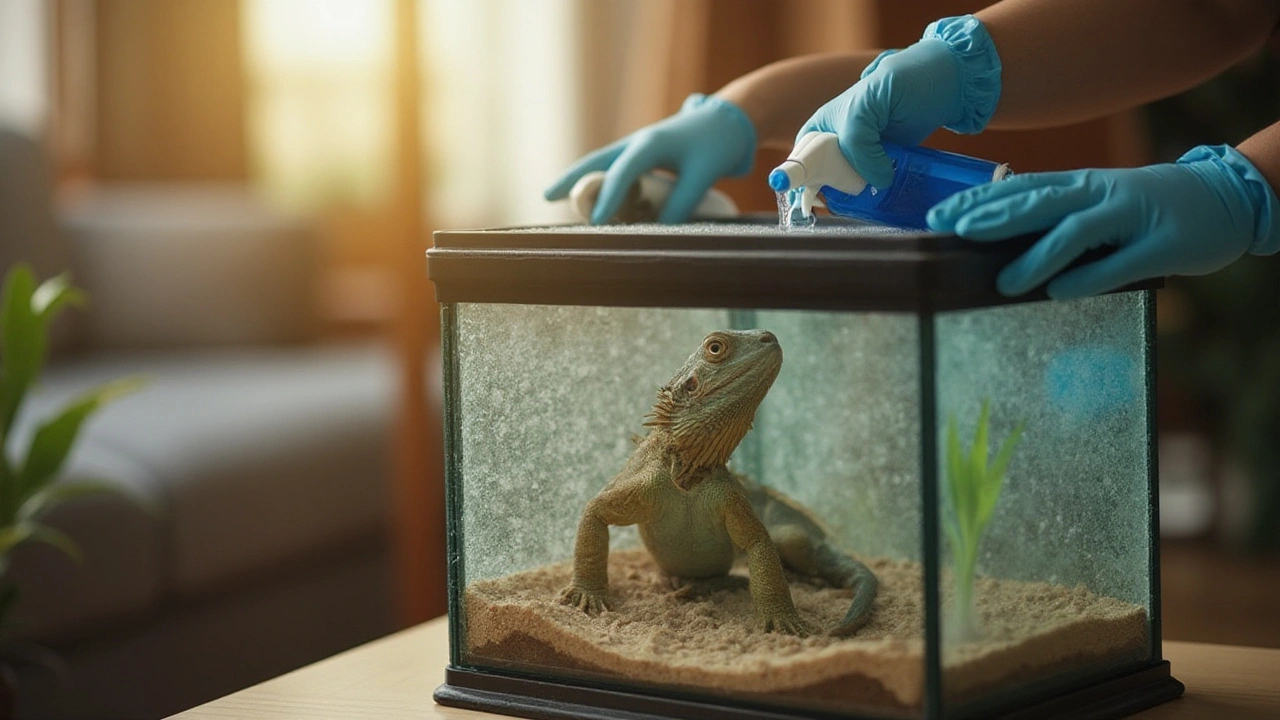Reptiles Health Insights: Easy Tips for Happy, Healthy Pets
If you own a lizard, snake, turtle, or any other scaly friend, you’ve probably wondered how to keep them feeling their best. The good news? Reptile care isn’t rocket science. With the right diet, a clean environment, and a few smart supplement choices, you can give your reptile a life that’s long and active.
Nutrition Made Simple
First off, feed your reptile what it would eat in the wild. For insect‑eaters like bearded dragons, crickets, dubia roaches, and mealworms are staples. Make sure the insects are gut‑loaded (fed nutritious food a day before you offer them) and dusted with a calcium powder that includes vitamin D3. This prevents metabolic bone disease, a common issue in captive reptiles.
Herbivores such as green iguanas need a variety of leafy greens – collard greens, mustard greens, and dandelion leaves work great. Toss in a sprinkle of a multivitamin designed for reptiles to cover any gaps. Carnivores like corn snakes thrive on appropriately sized frozen‑thawed mice or rats. Thaw them properly and never feed live prey to avoid injuries.
Common Health Concerns and When to Act
Even with perfect feeding, reptiles can develop problems. Watch for signs like loss of appetite, swollen eyes, or weight loss. Respiratory infections often show up as wheezing or constantly opening the mouth. If you notice these symptoms, a quick check with a vet who knows reptiles is worth it.
Shedding issues are another headache. If a reptile’s skin sticks to its body, a shallow humid hide can help soften the old skin. For stubborn patches, a gentle soak in lukewarm water (no more than 15 minutes) can do the trick.
When it comes to medication, many owners ask if human drugs can be used. The short answer: most humans meds aren’t safe for reptiles. However, some veterinary‑approved products, like anti‑inflammatory supplements (e.g., Iporuru extract) or pain relievers specifically formulated for reptiles, can be useful. Always follow the dosage instructions from a vet or the product label.
Supplements That Actually Help
Beyond calcium, a few other supplements can boost reptile health. Omega‑3 fish oil supports skin and shedding. A probiotic designed for reptile gut flora can aid digestion, especially after a diet change. If your reptile has joint issues – something you might see in older bearded dragons – a supplement containing natural anti‑inflammatories like Boswellia or the Amazonian herb Iporuru can ease discomfort. Stick to the recommended dose and watch for any changes in behavior.
When buying supplements or medications online, choose reputable sources. Look for websites that require a prescription or have a licensed veterinarian on staff. Avoid sketchy sites that promise “miracle cures” without any credentials. Secure payment methods and clear return policies are also good signs you’re dealing with a trustworthy supplier.
Creating a Stress‑Free Habitat
Stress weakens the immune system, so a calm environment is key. Keep the enclosure at the right temperature gradient – a basking spot for reptiles that love heat and a cooler area for when they need to chill. Provide hiding spots using rocks, cork bark, or commercial reptile caves. A regular cleaning schedule prevents bacterial buildup that can lead to infections.
Finally, handle your reptile gently and only for short periods until it’s comfortable. Over‑handling can cause stress, which shows up as a dull appetite or skin problems.
By focusing on proper nutrition, watching for health signals, using safe supplements, and maintaining a clean, temperature‑controlled habitat, you’ll give your reptile the best chance at a thriving life. Got a specific question about your pet? Drop a comment below – we love hearing about your scaly companions and helping you keep them healthy.

11
Sep
Understanding the Link Between Reptiles and Salmonellosis
This article explores the connection between reptiles and salmonellosis, detailing how the disease is transmitted, common symptoms, prevention tips for reptile owners, and the importance of proper hygiene. It aims to offer useful and practical advice to keep both reptile pets and their owners safe from this bacterial infection.